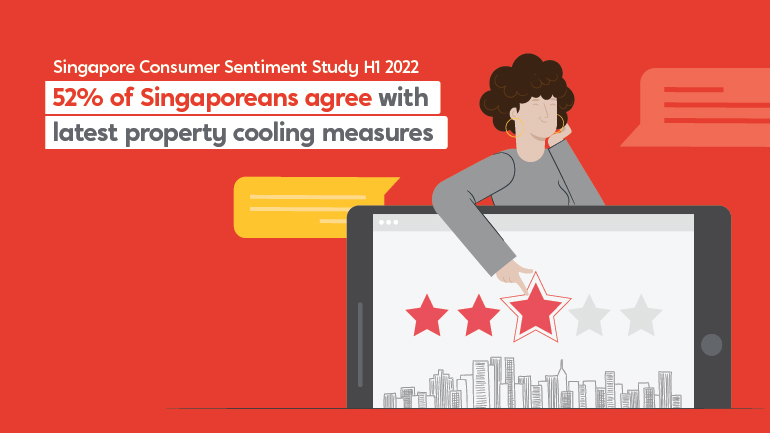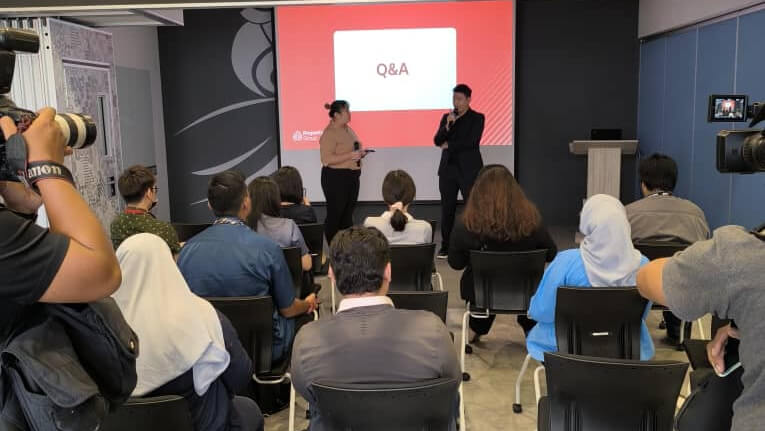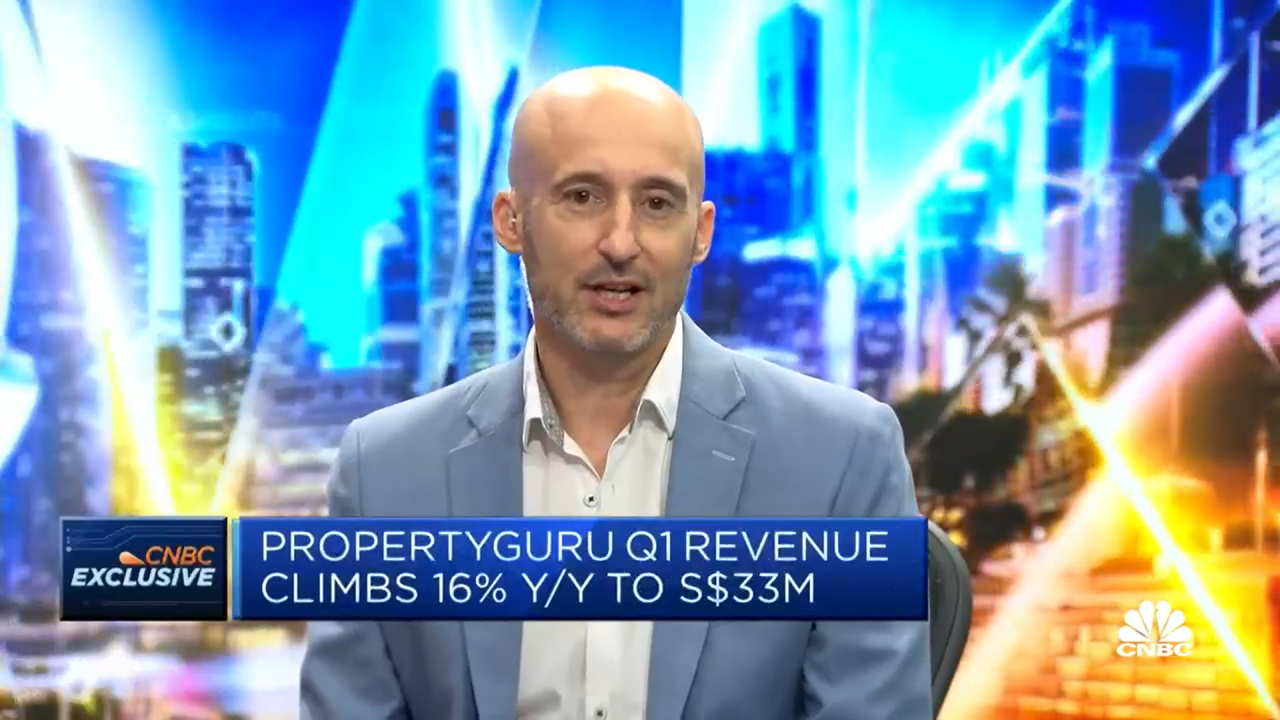SINGAPORE, 3 March 2022 – PropertyGuru, Singapore’s No.1 property marketplace with 84% market share*, today revealed that 52% of Singaporeans welcome the latest property cooling measures. On the other hand, Singaporeans who disagreed felt that the new measures would make it harder for them to afford the property they intend to buy. These findings are in line with a supplementary survey1 conducted on the back of the latest biannual H1 2022 PropertyGuru Consumer Sentiment Study (CSS), which measures the Singapore property market’s current consumer sentiments and expectations.
The supplementary survey1 polled 500 respondents between 10 January 2022 to 14 January 2022 to examine Singaporeans’ response to the new property cooling measures announced on 15 December 2021. Meanwhile, the H1 2022 Consumer Sentiment Study polled 860 Singaporeans and was conducted online between 15 November to 26 December 2021.
The study’s overall Sentiment Index – which measures current real estate satisfaction and overall climate, housing affordability, interest rates, perceived government efforts, and property prices – increased to 51 points in H1 2022, up by 3 points from 48 in H2 2021. This uptick was driven by Singaporeans’ positive outlook on future property prices, more reasonable perception of home loan interest rates, and better-perceived government efforts to make housing more affordable. More Singaporeans felt that home loan interest rates are fair, up from 45% in H2 2021 to 52% in H1 2022.
Singaporeans welcome the latest property cooling measures; some adopting a wait-and-see approach
Results from the supplementary survey, which captures consumers’ sentiments around the new cooling measures, were positive, with 52% agreeing with the move by the government. More than half of those who agreed (57%) felt that the cooling measures would slow down the increase in property prices. Among those who are not in favour, most (68%) felt that the new measures would make it harder for them to afford the property they intend to buy, while over a third (36%) felt that it would be more challenging for them to sell their properties.
The impact of the latest cooling measures on homebuyers’ aspirations is multifold – some have lowered their budgets and adjusted their expectations while some adopt a wait-and-see approach. 40% of Singaporeans have expressed intentions to change their preferred property of choice, while 32% of Singaporeans said they are not affected by the latest cooling measures. Half of Singaporeans (50%) are now considering a less expensive property compared to before, with an average budget decrease of 9.7%. Nearly 1 in 4 (24%) of Singaporeans have shared that they intend to delay their property purchase due to the latest cooling measures. “This is expected as property buyers pause to reconsider options and await further market reactions from sellers and developers,” said Dr. Tan Tee Khoon, Country Manager, PropertyGuru Singapore.
68% of homebuyers in Singapore are affected by the measures. Most (60%) were impacted by the Additional Buyer’s Stamp Duty (ABSD) rates. “The cooling measures impact Singapore residential property investors significantly. This may result in more investors turning to the commercial and industrial property market, where the Additional Buyer’s Stamp Duties and tight Loan-to-Value limits do not apply. If this happens, luxury properties and those in the Core Central Region are expected to be the most affected,” said Dr. Tan.
COVID-19 induced shift in property buying habits to persist
Findings from the main study indicate that the pandemic has sparked a shift in property buying habits, and these trends are expected to persist as the nation embraces the “new normal”. Property buyers in Singapore are likely to remain open to larger homes in suburban districts which are more value-for-money. 42% of Singaporeans expect greater demand for larger homes post-pandemic, while 30% anticipate greater demand for properties outside the central region.
As work from home continues for most professionals in Singapore, some (35%) expect preferences for residing in less crowded areas to increase. Almost one-third (33%) of Singaporeans have also indicated a desire to repurpose and beautify parts of their home to better suit the needs of all household members. Dr. Tan said, “Many of the COVID-19 induced changes in the way we work and live are here to stay. We’ve seen more businesses go through digital transformation, and more employers are exploring flexible working arrangements in the long run. In the same way, the resultant shifts in property buyers’ behaviours will persist.”
Retirement villages are unpopular despite most finding them a necessity; some consider relocating for retirement
Despite 90% of Singaporeans agreeing to the need for retirement villages, only 2 in 5 Singaporeans (41%) showed interest in moving into one in the future. Among those interested in moving to a retirement home in the future, the majority (71%) would consider moving to a retirement village once they are 70 years or older. The main factors driving the interest were the convenience of nearby public transport facilities, amenities such as parks and greeneries, and attractive prices with shorter lease periods.
“Singapore has a rapidly ageing population. As of 2021, 17.6% of the population are 65 years old and above. This number is expected to grow to 25% by 2030. Hence, it makes sense that the government is channelling resources to improve infrastructure and amenities for the senior population,” said Dr. Tan.
On the other hand, most Singaporeans (48%) plan to retire in their current home, with 37% citing that they prefer living with or near their children and family members. “Understandably, most would prefer to grow old with their family and a home that they’ve lived in for years. However, as needs and necessities evolve, their current housing may not be feasible. There need to be public housing options available that are elderly-friendly,” Dr. Tan noted.
Relocating is an option Singaporeans are considering as well, with over half (53%) expressing that retirement is one of the key reasons for intending to purchase properties overseas. Findings showed that Australia (25%) is the most attractive location for Singaporeans who are looking to purchase a property overseas, followed by the United Kingdom (15%), and Malaysia (12%).
Spending priorities for Millennials are shifting as more VTLs open
Singaporean Millennials have expressed growing their savings and saving for a home to be the top two priorities for the year. Younger Millennials (ages 22 to 29) prioritise more of their savings to purchase their first property, while the older group (ages 30 to 39) is saving to pay off debts.
Markedly, more Millennials are prioritising saving for vacations as Singapore opens more Vaccinated Travel Lanes (VTLs) in 2022, up by 7% from 35% in H1 2022. Dr. Tan said, “Limitations on recreational activities have caused many Singaporeans to increase their savings over the past two years, allowing them to splurge on property. That is not wrong, but it is also important to consider their long-term property aspirations. With prudent planning, these savings will go a long way in helping home seekers afford their dream homes.”
Accessibility to amenities, larger spaces, proximity to F&B outlets and malls are growing in importance for Millennials aged between 30 to 39 years when considering a new property amid the shift to a hybrid work arrangement. Demand for jumbo HDB flats (42%) remains high among Millennials, followed by 3-room flats (24%). However, approximately 1 in 4 Millennials (23%) still live with their parents despite 76% intending to move out in the next year. The majority cites being unmarried (50%) as the top barrier preventing them from moving out.
“The Millennial demographic has matured, and they now make up a large group of property seekers and owners. Since COVID-19, a growing population of Millennials has chosen to urgently move out of their family homes for more space and privacy. The younger, single Millennials often choose to rent while the older and perhaps married groups choose to buy move-in ready resale properties. This is the key contributing reason to why the resale and rental markets are booming,” said Dr. Tan.
About PropertyGuru’s Consumer Sentiment Study
Conducted half-yearly since 2009, PropertyGuru’s Consumer Sentiment Study measures property sentiments and expectations around the property market to help consumers, property agents, and developers gain a better perspective of the local property market. The H1 2022 Consumer Sentiment Study polled 860 Singaporeans, and the study was carried out online between 15 November and 26 December 2021. A separate and additional 500 respondents were surveyed between 10 January 2022 to 14 January 2022 to identify the impact of the property cooling measures.
About PropertyGuru Singapore
Launched in 2007, PropertyGuru.com.sg continues to be the No.1 property marketplace in Singapore. Currently with more than 84%* market share, PropertyGuru is the preferred destination for property seekers to find, finance and own their dream home. PropertyGuru.com.sg transformed the way Singaporeans find homes by taking property online and has since been helping them make confident property decisions. In 2020, PropertyGuru launched mortgage marketplace PropertyGuru Finance offering the best loans and home advisory.
For more information about PropertyGuru, please visit PropertyGuru.com.sg and PropertyGuruGroup.com, or our social media pages on Facebook, Instagram, Twitter, YouTube and LinkedIn.
*Source: SimilarWeb – Relative Engagement Market Share, average of Jul – Dec 2021
1 A separate and additional 500 respondents were surveyed between 10 January 2022 to 14 January 2022 to identify the impact of the property cooling measures.
|
For further queries or media interviews, please contact: |
|
|
Archetype Singapore Eugene Wee / Irene Teoh +65 96318699 / +65 8112 7803 |
PropertyGuru Group Laveesh Hassija +65 8141 7801 |







